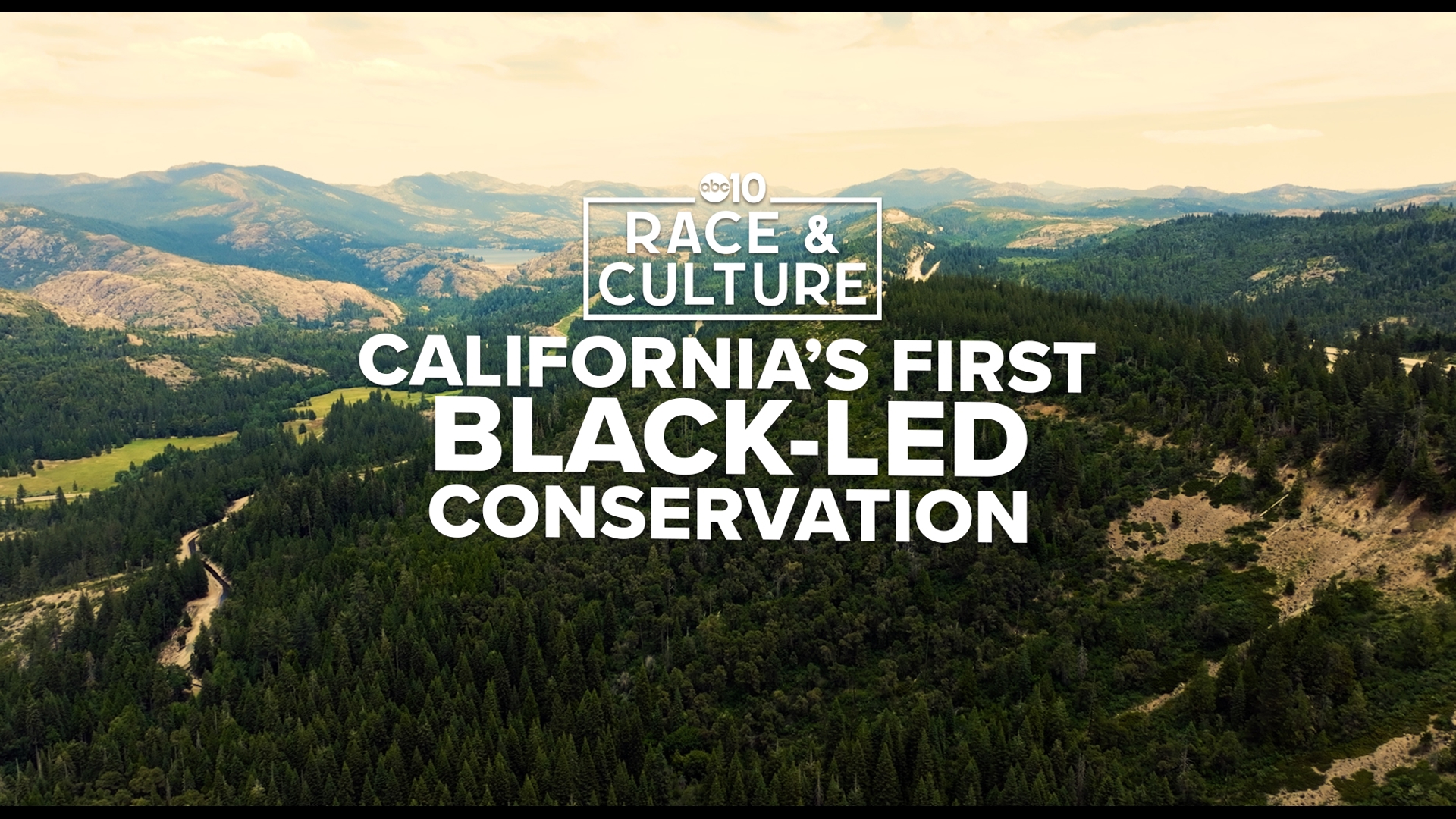PLACER COUNTY, Calif. — In a rural area in Placer County lies Emigrant Gap, a blanket of greenery surrounded by dense forests and scenic mountain views. Yet, in all of its rugged natural beauty, not everyone feels welcome or safe in outdoor spaces like these.
For many Black Americans, enjoying recreational activities such as camping, hiking or bird watching has been overshadowed by racism and exclusion.
Jade Stevens, a California woman is working to change that by founding the 40 Acre Conservation League, the state's first Black-led land conservancy. The organization exists to conserve land while also fostering inclusivity for all communities to enjoy the great outdoors.
Stevens hopes the conservancy can help close the "nature gap" or "adventure gap," the significant underrepresentation of people of color in nature, particularly Black people.
In August 2023, the organization was awarded millions of dollars by the Wildlife Conservation Board to secure 650 acres of wilderness in Emigrant Gap, a historic land acquisition. The area is the midway point between Sacramento and Lake Tahoe, which Stevens says is a great opportunity to cultivate tourism and recreation.
Stevens says by owning the conservation land and not just managing it, it’s a physical reminder that land is obtainable for people of color.
"There have been a lot of barriers that have prevented people from thinking about what owning land means," said Stevens. "But we know that land ownership is the main thing that gives generational wealth and investment into the outdoors.”
The inequities and exclusion people of color face in outdoor spaces is nothing new. Historically, the United States has systematically segregated and excluded people of color from public lands and other natural places, according to the report, "The Nature Gap: Confronting Racial and Economic Disparities in the Destruction and Protection of Nature in America."
"There have been so many stories from being heckled for having a barbecue in a public park to a gentleman in New York City who was just birdwatching," said Stevens.
The birdwatcher Stevens mentioned is Christian Cooper. In 2020, he was birdwatching in New York's Central Park when he asked a white woman to put her dog on a leash. When she didn't, he began filming her. In response, she called 911 and falsely accused Cooper of threatening her life. He recorded the encounter, and the video of the racially charged confrontation went viral, sparking outrage.
"When that incident happened to me, I was not necessarily surprised," said Cooper.
The white woman was later charged for filing a false police report, and following the racist incident, Cooper wrote a memoir about his experiences in nature as a Black man, hoping to inspire others like him to get outside.
“We live in a society that is rife with all kinds of racial bias conscious or unconscious, long-standing or hidden. It almost seems baked into our society," said Cooper.
Stevens says those feelings go all the way back to the end of the Civil War — and it’s actually that part of history that inspired the name of her conservation organization.
"The 40 Acre Conservation League was inspired by the concept of '40 acres and a mule,' which was the promise that upon freedom, Black individuals would be able to not only get mules but get a plot of land, 40 acres, but we know that that promise was never fulfilled, and it continued on for years and years and years," said Stevens.
“40 acres and a mule” was the first attempt at reparations for slavery, but it wasn't the last. In California, there has been a growing push for reparations for Black descendants of enslaved people, based on discriminatory laws and unlawful property seizures, which contributed to lasting disparities in wealth, education and health for generations of Black Californians.
Land ownership is part of the reparation efforts in California. However, in September 2024, Gov. Gavin Newsom vetoed a bill that would have helped Black families reclaim or be compensated for property that was unjustly taken by the government.
Beyond conserving land, Stevens understands the deeper significance of reclaiming space for the Black community and building a legacy for future generations. With the help of grants like California's 30x30 Initiative, the 40 Acre Conservation League is not just protecting wilderness — it’s rewriting a narrative of exclusion and opening the outdoors to everyone.
"Now that we've been able to acquire the land, our goal is to really leave breadcrumbs for others to follow," said Stevens. "So we're no longer the only ones in this space."
WATCH MORE ON ABC10: CA reparations advocates disappointed by inaction on bills in final day of legislative session (Aug. 2024)



















